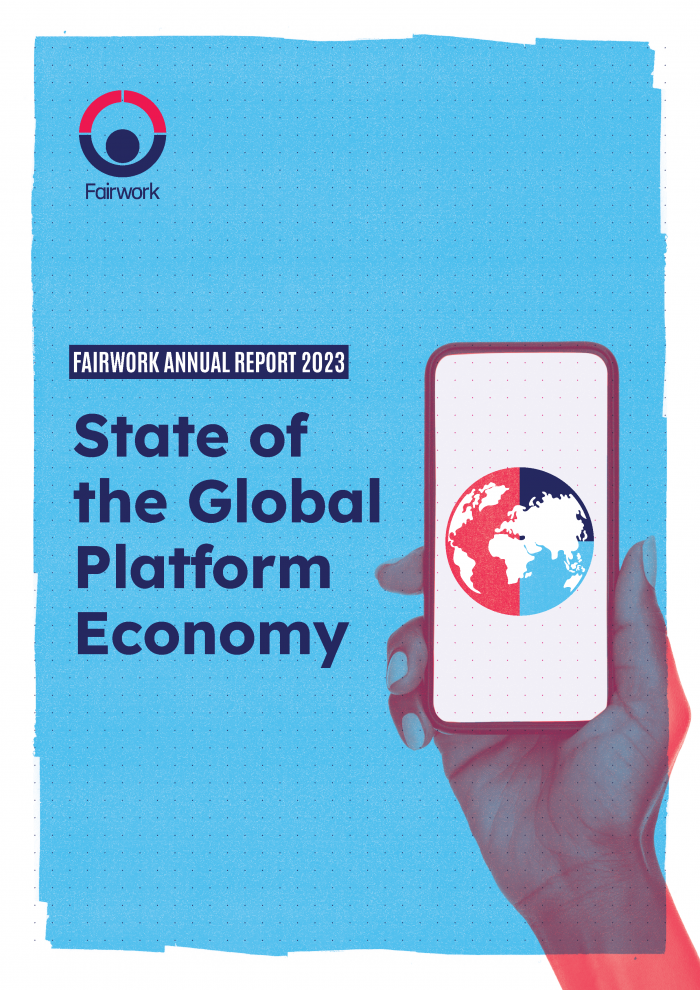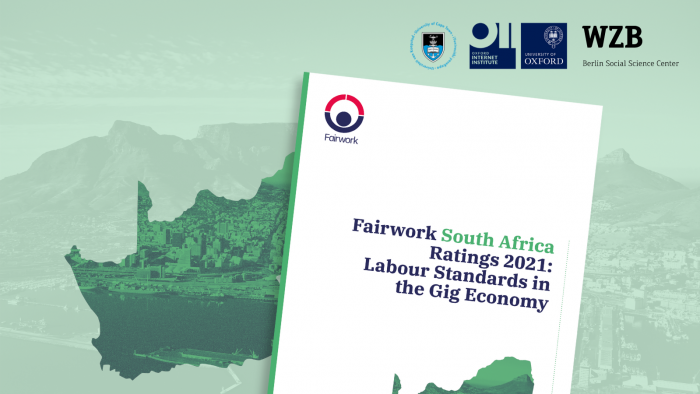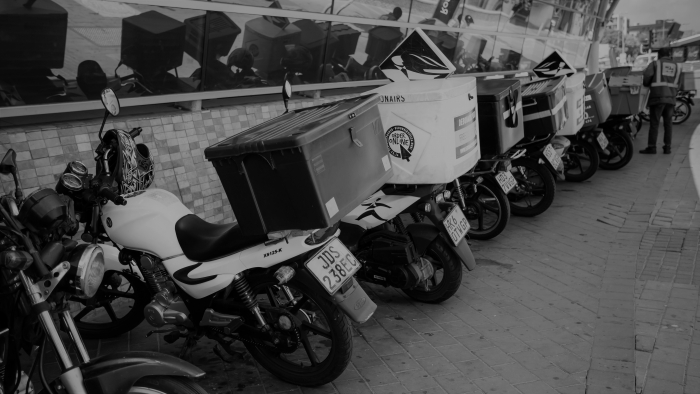

In consultation with the Fairwork team, the following platforms agreed to implement changes to their policies or practices:
1.1: getTOD has reduced the commission they claim for labour (25%) and materials (5%) on each work engagement, to 20% on labour only.
1.1: Besides an inflationary increase to base delivery fees this year, Mr D has introduced a variable fuel surcharge to compensate drivers for additional costs arising from fuel increases. Several increases in line with changes in the fuel price have been made since the surcharge was introduced at the end of 2021.
2.1: As part of their commitment to upskilling their tradespeople, getTOD has trained more than 60 small companies across South Africa on how to install smart devices, and it continues to do so.
3.1: SweepSouth has re-structured their contract, reorganised the content, and simplified the language to make terms and conditions clearer for workers.
4.1: SweepSouth have changed their terms and conditions to include the process for workers to appeal low ratings, non-payment, payment issues, deactivations, and other penalties and disciplinary actions.
4.2: Mr D is making continuous progress in contracting more females into their workforce. Female driver representation has increased from 11.5% in 2021, to 13.9% in 2022.
5.1: getTod continues to reach out in attempts to identify associations willing to work with them to assist workers to organise, collectively express their wishes and be listened to.
5.1: SweepSouth made a public statement in 2021 confirming their willingness to engage in collective bargaining and published this in a blog. SweepSouth have now agreed to find a better way of conveying this commitment to platform workers.
In consultation with the Fairwork team, the following platforms agreed to implement changes to their policies or practices:
2.1: Sweepsouth commited to remove personal addresses or Sweepstars from customer invoices
3.1: GetTOD converted their terms and conditions from UK to South African law.
3.1: NoSweat has created a non-technical version of their terms and conditions (T&Cs) to ensure that all workers have a thorough understanding of the contract they are committing to. This has served as a model for M4Jam to adopt a similar approach to their T&Cs.
4.2: SweepSouth released a public commitment to equality, diversity and inclusion (EDI).
5.1: SweepSouth released a public statement confirming their willingness to engage in collective bargaining
In consultation with the Fairwork team, the following platforms agreed to implement changes to their policies or practices:
1.2: GetTOD agreed to pay all workers above the national living wage.
1.2: NoSweat to pay workers above a living wage.
3.1: NoSweat added a simplifying ‘explainer’ to accompany the contract.
4.1: GetTOD clarified disciplinary processes in contract.
4.1: NoSweat documented the grievance channel and process in ‘purchase order’ (contract).
4.2: Sweepsouth committed to develop policy on non-discrimination within the next 12 months.
5.2: GetTOD added a statement on union recgonition added to contract.
In consultation with the Fairwork team, the following platforms agreed to implement changes to their policies or practices:
1.2: NoSweat instituted policy to pay all workers over the minimum wage after costs
2.1: NoSweat changed its buyer terms and conditions so clients on the platform agree to protect workers’ health and safety
4.1: NoSweat developed a portal and process for workers to lodge grievances
5.2: Bottles committed to support the development of a workers’ organisation that could undertake collective bargaining, if one were to exist

8 July 2021

29 October 2020

17 September 2020
23 July 2020
This website uses cookies so that we can provide you with the best user experience possible. Cookie information is stored in your browser and performs functions such as recognising you when you return to our website and helping our team to understand which sections of the website you find most interesting and useful.
This cookie remains on your computer for 365 days, but you can adjust your preferences at any time by clicking on the "Cookie settings" link in the website footer.
Please note that if you visit the Oxford University website, any cookies you accept there will appear on our site here too, this being a subdomain. To control them, you must change your cookie preferences on the main University website.
If you disable this cookie, we will not be able to save your preferences. This means that every time you visit this website you will need to enable or disable cookies again.
This website uses the following additional cookies from third party websites:
These cookies will remain on your computer for 365 days, but you can edit your preferences at any time through the "Cookie Settings" in the website footer.
Please enable Strictly Necessary Cookies first so that we can save your preferences!
This website uses Google Tags and Google Analytics to collect anonymised information such as the number of visitors to the site, and the most popular pages. Keeping these cookies enabled helps the OII improve our website.
Enabling this option will allow cookies from:
These cookies will remain on your website for 365 days, but you can edit your cookie preferences at any time via the "Cookie Settings" button in the website footer.
Please enable Strictly Necessary Cookies first so that we can save your preferences!